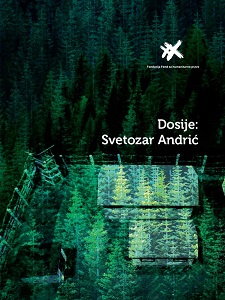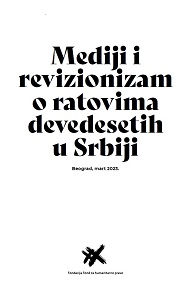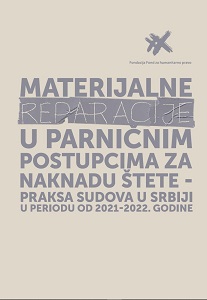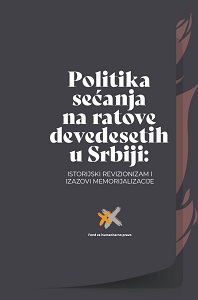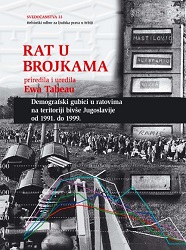
We kindly inform you that, as long as the subject affiliation of our 300.000+ articles is in progress, you might get unsufficient or no results on your third level or second level search. In this case, please broaden your search criteria.

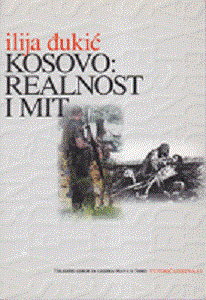
Međnarodni položaj Srbije i SR Jugoslavije i dalje je izuzetno složen i nepovoljan. Karakteriše ga: – Ukupno i veliko zaostajanje za promenama do kojih je došlo u svetu i posebno u Evropi, pa čak i pružanje otpora oficijalne i srpske politike (ali ne samo nje) tim promenama. Propuštene su godine i vreme, u kojima je trebalo da se izvrši usklađivanje kako spoljne politike i međunarodnih odnosa Srbije i SRJ, tako i njihovog unutrašnjeg razvoja sa dalekosežnim i temeljnim promenama u Evropi i svetu. – Produženo odsustvo stvarne i pune normalizacije odnosa sa glavnim centrima moći u međunarodnim odnosima. Postojeći kontakti se svode i dalje na razgovore i pregovore u funkciji primene mirovnog paketa sporazuma iz Dejtona. Uz to, ovi kontakti su po pravilu inicirani od strane međunarodne zajednice, odnosno nosioca njenih obaveza proizašlih u Dejtonu, a ne na inicijativu Srbije i SRJ, pa i ne idu dalje od iznuđene "kooperativnosti" srpskojugoslovenske strane.
More...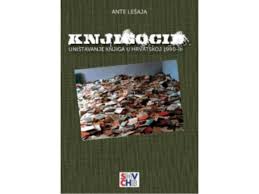
Postoje tekstovi – zbirke dokumenata, prikazi nekog događanja i sl. – kojima je potrebno pridodati »riječ unaprijed«. Razlozi mogu biti razni, a autor ih je dužan navesti. Svrha je ovog Uvoda da olakša čitaocu razumijevanje pozicije s koje sam prišao koncipiranju teksta i obradi konkretnog predmeta. A predmet kojim se bavim je uništavanje knjižne građe u Hrvatskoj od 1990. do 2010. godine, dakle, u razdoblju od dvadeset godina.Dva su osnovna razloga zbog kojih sam se tim fenomenom počeo baviti. Jedan, inicijalni, moja je osobna povezanost sa slučajem koji je kroz brojne napise postao poznat kao »bacanje knjiga u kontejner za smeće u Korčuli«, a drugi je iznenađujući intenzitet netrpeljivosti prema Drugome i isključivost – politička, nacionalna, etnička i ideološka – u vrijeme »prevrata devedesetih«, s pripadajućim i već puno puta u povijesti viđenim tragičnim posljedicama – ubijanjima, razaranjima imovine i uništavanjem spomeničke baštine. Stoga je i uništavanje knjižne građe u Hrvatskoj, u mjeri u kojoj ga je bilo i kao samo jedno u nizu sličnih povijesnih iskustava, zadobilo svoju »povijesnu obilježenost«.
More...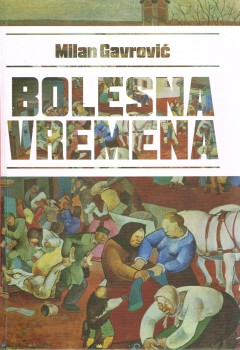
Moto za ovu knjigu preuzeo sam od »Duhovne republike Zicer«, osnovane u klubu Zicer u Novom Sadu još godine 1992. s ciljem da spriječi mobilizaciju za rat koji se vodio u Hrvatskoj. Jugoslavija je tada već bila raskomadana, bile su prekinute komunikacije između novih država, a sve informacije strogo kontrolirane i cenzurirane. Tako sam za tu »republiku«, koja je bila dio širokog antiratnog pokreta u Vojvodini, doznao tek u ljeto 2014. iz tjednika Novosti, koji je prenio dio teksta iz projeka »Living Together« (Živjeti zajedno), financiranog od Europske unije. Naravno, patetična optužba tog mota nije sasvim pravedna, točnije, ne odnosi se na sve ljude. Nasilje, zločini i laži proizveli su kolektivnu paranoju, a nacionalizam je jedan od njenih najstrašnijih oblika. Osim toga čini se kako je u prirodi čovjeka da kao normalna prihvaća pravila uspostavljena u sredini u kojoj živi, iako se ona ponekad mijenjaju nevjerojatnom brzinom. Dra-matičan primjer je njemačka zdravstvena služba koja je već na početku Hitlerove vladavine, /kao normalni dio brige o zdravlju nacije, prihvatila kastraciju svakog tko je bio proglašen psihičkim bolesnikom. Ponašanje mnogih ljudi kod nas, u proteklih četvrt stoljeća, slijedilo je isti obrazac. Ali za one koji se smatraju mislećim dijelom nacije i koji su imali prilike govoriti, gornji moto ima punu vrijednost. Nije zanemariv ni broj onih koji su toga bili svjesni, a nisu šutjeli, iako su bili izloženi raznim pritiscima i šikaniranjima. Istovremeno su vladari novih država počeli kontrolirati sve medije i javne tribine na kojima su postali dobrodošli samo zagovornici nacionalističke mržnje.
More...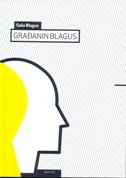
Kontrarevolucionarni građanski rat iz devedesetih u Hrvatskoj još uvijek traje. Istina, vodi se drugim sredstvima, ali još uvijek traje. Znakova izlaska iz »olovnih vremena« ne da nema, nego je na djelu intenziviranje izuzetno regresivnih društvenih kretanja. Prije 14 godina sam počeo iskazivati neslaganje s rušenjem svih temelja društvenih odnosa i države koji su u sebi nosili klicu mogućnosti ozbiljavanja istinske ljudske zajednice, premda sami to još nisu bili. U njima je ipak bilo, kako je govorio Milan Kangrga, »nekaj ljudskog«. Svrha rata koji je Tuđman nazvao domovinskim bila je gušenje baš te mogućnosti. Imao sam potrebu protestirati ne samo protiv brutalne restauracije kapitalizma koja je eufemistički nazvana tranzicijom, nego i protiv naleta historijskog revizionizma kojemu je cilj rehabilitiranje i eventualno oživljavanje zločinačke NDH. I zaista, rat je imao sva obilježja nastavka »velikog čišćenja« koje u Drugom svjetskom ratu nije uspjelo. Radikalno zlo je ponovno eksplodiralo; ono prirodno, divlje, nagonsko, sirovo, surovo, još-ne ljudsko nadvladalo je slobodu, duh i um. Suočili smo se s materijaliziranim fantomom – ovdašnji, samonikli oblici nacizma i fašizma, ustaštvo i četništvo, ponovno su oživjeli kako bi zgazili duh evropskog moderniteta na ovim prostorima.
More...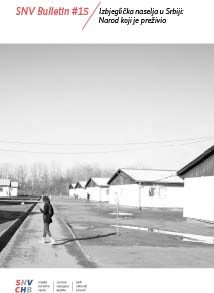
During the last war, in the beginning of the 90s, there were around 400 000 Serbs who escaped Croatian territory and most of them ended in Serbia where they, in smaller or bigger groups, live in metropolitan areas, cities and villages even today. Those smaller groups of mostly compatriots are united by the sad destiny of refugees, solidarity and memory of homeland. Almost a half of this half a million population lives in Autonomous Province of Vojvodina in villages mostly built on their own on empty fields, on the outskirts where initially there were no conditions to develop a civilized lifestyle. Those settlements live as a memory of self-sacrifice of population torn from their root, left with nothing and forced to undertake a precarious road to a new environment. It should be emphasized that most of the refugee settlements in Vojvodina and elsewhere aren't slums or ‘empires of poor’, but solid houses that children leave every day to go to school, their parents to go to work and earn their daily bread and the eldest do their best to help as much as they can. In the moment they were built, those houses witnessed blood, sweat and tears of their household members because suffer and trouble are in common to almost every one of the half a million of Serbs who came to Serbia from Croatia. Psychologically, we can never measure the amount of negative energy accumulated among the Serb refugees from Croatia during the mid-90's which resulted in many diseases, death and existential traumas, however, there was also a strong will to survive; the Serb refugees from Croatia managed to sustain and initiate a new life in Serbia.
More...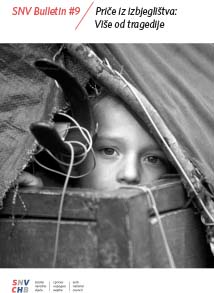
For years it has been emphasised that after the Operation “Storm” at the start of August 1995, some 250 000 Croatian citizens of Serb nationality were expelled from Croatia, probably in order to highlight the sheer scale of the drama of that moment and of the people who fled. Unfortunately, the number is far greater: more than 400,000 Serbs left Croatia during the 1991-1995 war that raged on the territory of this former Yugoslav Socialist Republic. In the beginning, ever since the HDZ party came to power in 1990, they had been coming in Serbia quietly ”with two suitcases and a back¬pack“. They started coming after the first layoffs, after threats below their windows and nasty looks from their neighbors, from anonymous tele¬phone calls and graffiti on the walls containing the letter “U”. It was a time of nationalist triumphalism, a time of invoking ”Croatia within its historic and ethnic borders”, a time when (the first Croatian president) Franjo Tuđman cried out a sentence that is still quoted today, that the ”NDH was also an expression of the Croatian people’s historic will”.
More...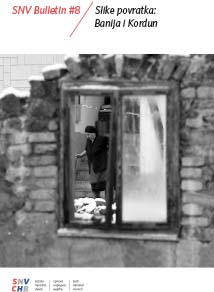
A man can be deprived of his house and land, he can lose money and health and homeland, but something will always remain to provide strength and will for a new start. But take away a man’s dignity and there will appear an emptiness that nothing can assuage, and it will fill him with disappointment and anxiety. Thus he will lose the last foot¬hold from which he has drawn the strength needed to overcome all the trials and tribulations, to stay and survive.
More...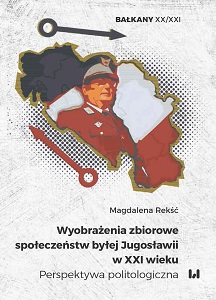
The publication is a novel study in the field of Polish political science regarding collective representations – a category associated mainly with sociology – from the point of view of a political sphere researcher. The theoretical model adopted by the author has been used to outline and analyze the shapes of collective representations of the peoples of the former Yugoslavia in the difficult period of protracted economic crisis and the accumulation of further political problems. The in-depth diagnosis of ordinary people's feelings about the reality that surrounds them has led to the ascertainment that, over the recent years, rising problems and negative emotions have begun to predominate over optimistic premises, while maintaining stability in the region requires some more determined and well-thought-out actions by the international community. The monograph, written from the perspective of political science and based on qualitative data, combines the elements of other social sciences and humanities, which appeared necessary to explain the interdisciplinary category of collective representations in an integral manner. This broader view of the complicated Balkan region can contribute to improving the knowledge and understanding of it.
More...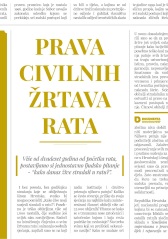
1. Priznanje patnje i naknada štete. Put do iscjeljenja žrtava i društva; 2. Prava civilnih žrtava rata; 3. Kako ostvariti pravo na zaštitu kao civilna žrtva rata u Republici Hrvatskoj kroz upravni postupak?; 4. Kako pokrenuti postupak proglašenja nestale osobe?; 5. Kako ostvariti pravo na reparaciju kao civilna žrtva rata kroz sudski postupak u Republici Hrvatskoj?; 6. Sudski postupak za naknadu nematerijalne štete zbog usmrćenja bliskog srodnika tijekom Domovinskog rata; 7. Žrtve ratnih zločina; 8. Odgovornost Republike Hrvatske za usmrćenje civila tijekom Domovinskog rata; 9. Zastara pokretanja građanskog zahtjeva za naknadu nematerijalne štete (ZOO, NN 35/05, 41/08); 10. Pokretanje sudskog postupka; 11. Presude Europskog suda za ljudska prava protiv Republike Hrvatske kojima je utvrđena povreda prava na život; 12. Korisni kontakti u ostvarivanju prava civilnih žrtava rata
More...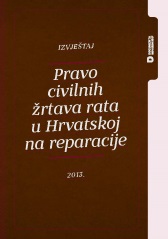
1. Bez političkih i pravosudnih pomaka nakon više od 20 godina. • Civilna stradanja – neutvrđen broj • Odsustvo zakonodavnih rješenja • Postupci za naknadu štete pred hrvatskim sudovima i Europskom sudu za ljudska prava - tek poneki usvojen tužbeni zahtjev • Troškovi izgubljenih parnica – prvi slučaj otpisanog parničnog troška; 2. Potrebe i iskustva civilnih žrtava rata • Ciljevi i metodologija istraživanja; 3. Ostvarenje prava na obeštećenje • Ostvarena prava kroz upravni i sudske postupke; 4. Podrška civilnim žrtvama rata; 5. Iskustva specifičnih skupina civilnih žrtava rata • Žrtve terorističkih napada Studija slučaja • Osobe kojima je zbog ratnih djelovanja poginuo, umro ili nestalo član obitelji Studija slučaja • Civilni invalidi rata Studija slučaja • Žrtve seksualnog nasilja Studija slučaja; 6. Preporuke Korišteni izvori
More...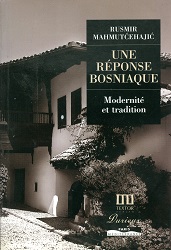
The events that struck Bosnia at the turn of the millennium - its people slaughtered and expelled, assaulted and humiliated, its towns and villages ravaged - did not concern only Bosnia. No individual, nation, region or state was protected from it, although their role took different forms. It is the whole human person who has suffered. It would be a never-ending task to list and describe these various experiences, and anyway, no matter how deep we go, their essence may well remain elusive. This is why this book attempts, on a more general level, to differentiate the modern world view from the traditional one, allowing a "Bosnian response" to take shape as they meet. // PUBLISHED IN 2005 BY DURIEUX PUBLISHING HOUSE BASED IN ZAGREB
More...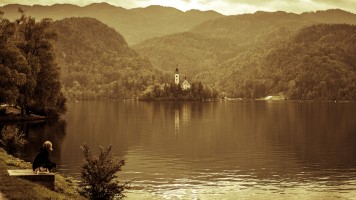
Nakon 30 godina neovisnosti, prema različitim mjerilima Slovenija se u svijetu općenito smatra relativno razvijenom, sigurnom, ekološki čistom, turistički atraktivnom i socijalnom državom. Uključena je u sve značajne međunarodne institucije i još uvijek je ekonomski razvijenija od svih bivših jugoslavenskih republika. Prema takozvanom Ginijevom koeficijentu, koji mjeri nejednakost dohotka, jedna je od zemalja s najravnomjernije raspodijeljenim dohotkom među kućanstvima u EU.
More...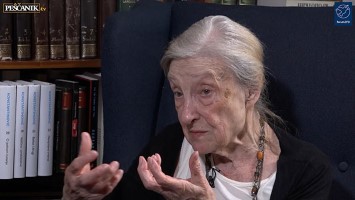
30 godina samostalnosti Hrvatske i Slovenije: Sovjetska imperija se raspala bez nasilja iako je 27 miliona Rusa ostalo da živi van granica nove Ruske federacije. Česi i Slovaci su se rastali uz šampanjac. Zašto je Jugoslavija nestala u krvi? Govori istoričarka Latinka Perović. Razgovor vodi Svetlana Lukić.
More...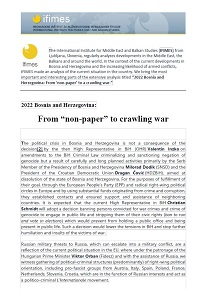
The political crisis in Bosnia and Herzegovina is not a consequence of the decision[2] by the then High Representative in BiH (OHR) Valentin Inzko on amendments to the BiH Criminal Law criminalizing and sanctioning negation of genocide but a result of carefully and long planned activities primarily by the Serb Member of the Presidency of Bosnia and Herzegovina Milorad Dodik (SNSD) and the President of the Croatian Democratic Union Dragan Čović (HDZBiH), aimed at dissolution of the state of Bosnia and Herzegovina. For the purposes of fulfillment of their goal, through the European People’s Party (EPP) and radical right-wing political circles in Europe and by using substantial funds originating from crime and corruption, they established contacts and ensured support and assistance of neighboring countries. It is expected that the current High Representative in BiH Christian Schmidt will adopt a decision banning persons convicted for war crimes and crime of genocide to engage in public life and stripping them of their civic rights (ban to run and vote in elections) which would prevent from holding a public office and being present in public life. Such a decision would lower the tensions in BiH and stop further humiliation and insults of the victims of war.
More...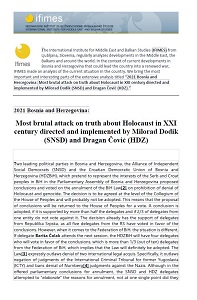
Two leading political parties in Bosnia and Herzegovina, the Alliance of Independent Social Democrats (SNSD) and the Croatian Democratic Union of Bosnia and Herzegovina (HDZBiH), which pretend to represent the interests of the Serb and Croat peoples in BiH in the Parliamentary Assembly of Bosnia and Herzegovina proposed conclusions and voted on the annulment of the BiH Law[2] on prohibition of denial of Holocaust and genocide. The decision is to be agreed at the level of the Collegium of the House of Peoples and will probably not be adopted. This means that the proposal of conclusions will be returned to the House of Peoples for a vote. A conclusion is adopted, if it is supported by more than half the delegates and if 2/3 of delegates from one entity do not vote against it. The decision already has the support of delegates from Republika Srpska, as all five delegates from the RS have voted in favor of the conclusions. However, when it comes to the Federation of BiH, the situation is different. If delegate Bariša Čolak attends the next session, the HDZBiH will have four delegates who will vote in favor of the conclusions, which is more than 1/3 (out of ten) delegates from the Federation of BiH, which implies that the Law will definitely be adopted. The Law[3] expressly outlaws denial of two international legal acquis. Specifically, it outlaws negation of judgments of the International Criminal Tribunal for former Yugoslavia (ICTY) and bans denial of Nurnberg[4] judgments against the Nazis. Although in the offered parliamentary conclusions for annulment, the SNSD and HDZ delegates attempted to “elaborate” the reasons for annulment, not at one single point did they refer to the annulment of the part of the Law that reads: “Whoever publicly condones, denies, grossly trivializes or tries to justify a crime of genocide, crimes against humanity or a war crime established by a final adjudication pursuant to the Charter of the International Military Tribunal appended to the London Agreement of 8 August 1945 or by the International Criminal Tribunal for the former Yugoslavia or the International Criminal Court or a court in Bosnia and Herzegovina, directed against a group of persons or a member of such a group defined by reference to race, color, religion, descent or national or ethnic origin, when the conduct is carried out in a manner likely to incite to violence or hatred against such a group or a member of such a group, shall be punished by imprisonment for a term between six months and five years.” Namely, this is related to a premeditated and preconcerted action of European right-wing conservative and pro-fascist parties gathered around the so-called manifest of the “gathering of European Patriots”, who act in BiH through Milorad Dodik, SNSD President and Dragan Čović, HDZBiH President. The request and the vote in a national parliament for annulment of the law related to denial of judgments related to the Holocaust is the most brutal attack on the truth about the Holocaust in the XXI century.
More...